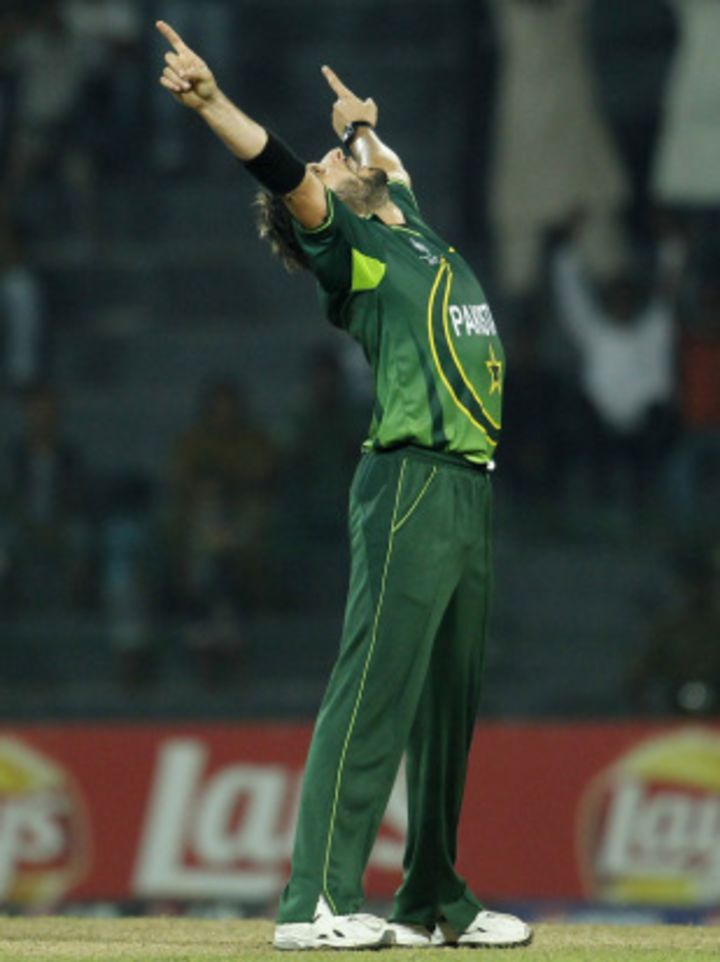Advice for the walking wounded
Several players at the World Cup have serious medical problems

During the World Cup to date, I have identified several players with afflictions that seem to have gone undiagnosed. I urge them each to seek medical attention immediately.
Piyush Chawla
Thrust into the Indian World Cup side ahead of esteemed colleagues such as Pragyan Ojha and Ravi Ashwin, Chawla has struggled so far. However, unbeknownst to him and the Indian team, he has contracted an infectious, career-threatening disease.
Although his primary ailment is clearly being trapped in the body of a small boy, Chawla is currently suffering from a more serious condition: he is noticeably affected by an increasingly common ailment called Paul Harris Syndrome, a crippling neurological disorder in which no matter how hard they try, spinners simply cannot turn the ball to save their lives.
This condition has a 100% mortality rate for spinners on the international stage, although some have been known to survive for up to a decade on the domestic circuit. The etiology of this syndrome is thought to arise from the well-described Ashley Giles Virus, in which bowlers feel compelled to bowl negative, defensive lines, even on the most raging of turners.
Chawla is thought to have contracted the virus after having spent time in the nets with a patient who hasn't turned a ball for the best part of five years, Harbhajan Singh.
Kamran Akmal
The senior Akmal brother suffers from a severe congenital deformity: he was born with a full-sized pair of orchestral cymbals in place of his hands.
When he was younger, his Lahore family GP was so flummoxed by the case that, in a vain attempt to cover up the disfigurement, he ended up handing Akmal an oversized pair of wicketkeeping gloves.
The affliction means that catching a ball is a near impossibility for poor Kamran, as he regularly thunders his cymbals together like a miniature toy monkey. This severely impacts his quality of life, as he drops catch after catch for his national team. After a particularly poor day in the field (i.e. every day), Akmal's wife - understandably - doesn't even let him hold their kids.
Other symptoms of Akmal's unique ailment include quickly attempting to cover up his blunders in a tragic act of futility, by scooping his two hands together to pick up the ball, before comically dropping it once more, huffing in double-teapot position and waiting for his first slip to come to the rescue.
Appropriately Akmal then typically claps his cymbals together, shrilly screaming: "Koi baat nahin! Shabash shabash!"
However, Akmal - Pakistan's no. 1 wicketkeeper after Rashid Latif, Moin Khan and Zulqarnain Haider - is somewhat of a pioneer for the disabled community. In spite of his performances both behind and in front of the stumps, he has been awarded with a Category A contract by the PCB. The A stands for "A bloody joke that he's anywhere near the team".
The only known treatment for Akmal's deformity is to amputate his hands. Many Pakistan fans have offered to perform the surgery, free of charge.
Shahid Afridi
Any armchair MD can tell you that Afridi suffers from Attention Deficit Hyperactivity Disorder, a condition thought to affect up to 5% of the population. The diagnosis was made on the basis that Afridi fulfills the following official criteria for ADHD:
Speaks so fast he could recite an entire Shakespeare play in the space of a post-match interview.
Is easily distracted by any butterflies in his eyeline while batting.
Often has trouble keeping to simple tasks, such as not throwing away his wicket.
Struggles to follow simple instructions, to the extent that even "tear here" packaging proves to be a day-defining activity.
Often has trouble paying attention to trivialities, such as Test cricket.
Sprints back to the dressing room just to see a replay of his wicket every time he gets out.
Often has difficulties with patience, as seen in taking on and then immediately resigning the national captaincy.
Often forgets important things, such as the fact that a cricket ball is inedible.
Often has trouble following questions, especially in post-match interviews: "Inshallah the boys played well - I wonder how they make these giant cheques - Kamran was just plain unlucky."
Nishant Joshi is a medical student. When not taking patient histories, he is editor of The Alternative Cricket Almanack 2011. He blogs here and tweets here
Read in App
Elevate your reading experience on ESPNcricinfo App.